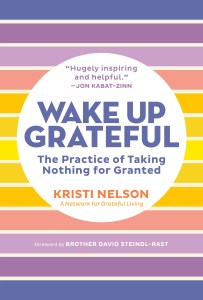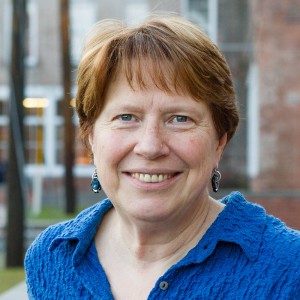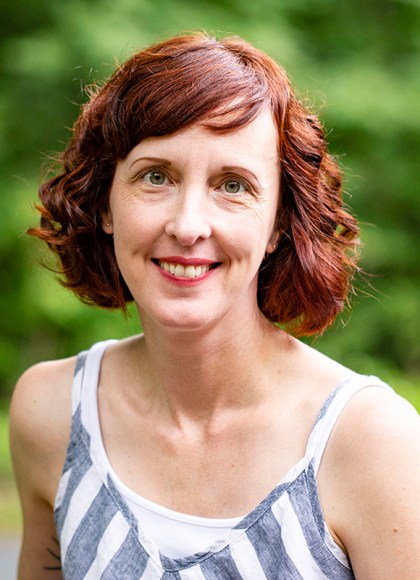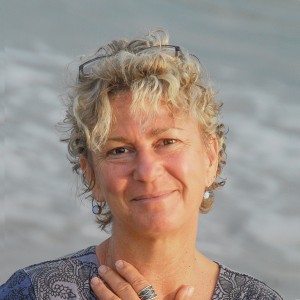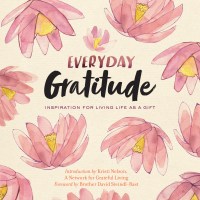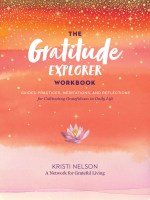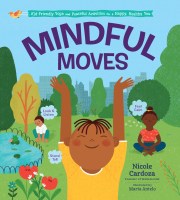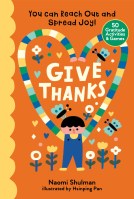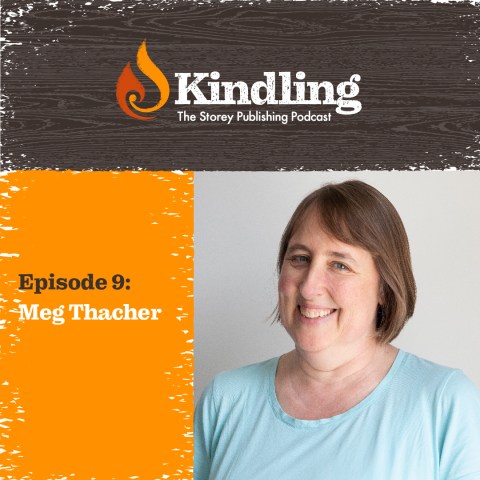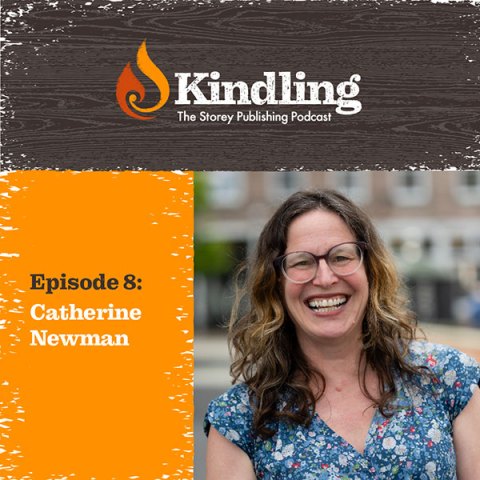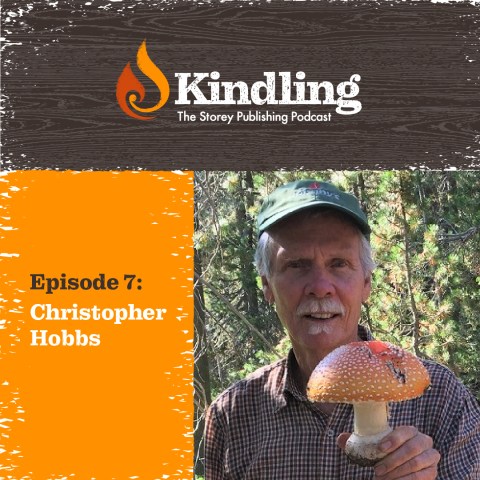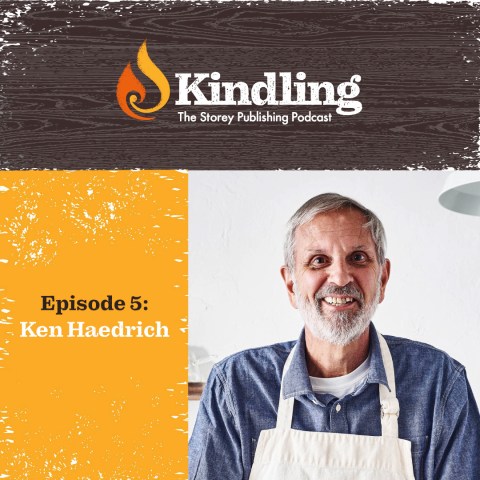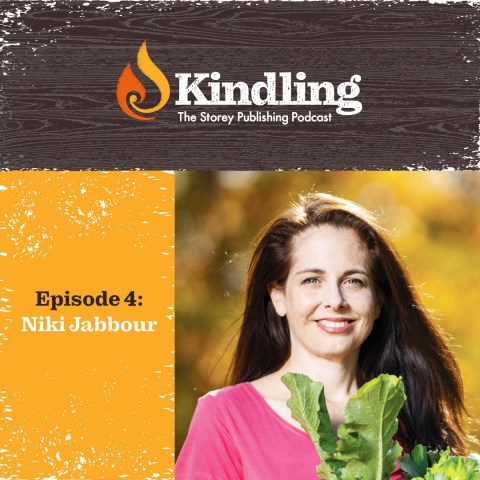Kindling Podcast Episode 10: Kristi Nelson
Tune in as Storey creative director Alethea Morrison speaks with Kristi Nelson about her book, Wake Up Grateful: The Transformative Practice of Taking Nothing for Granted.
In this episode, Nelson shares how cancer was a big breakthrough experience for her in terms of orienting toward a more grateful life. She offers thoughts on how to awaken a sense of possibility in moments of uncertainty, and first-hand tips for navigating anxiety.
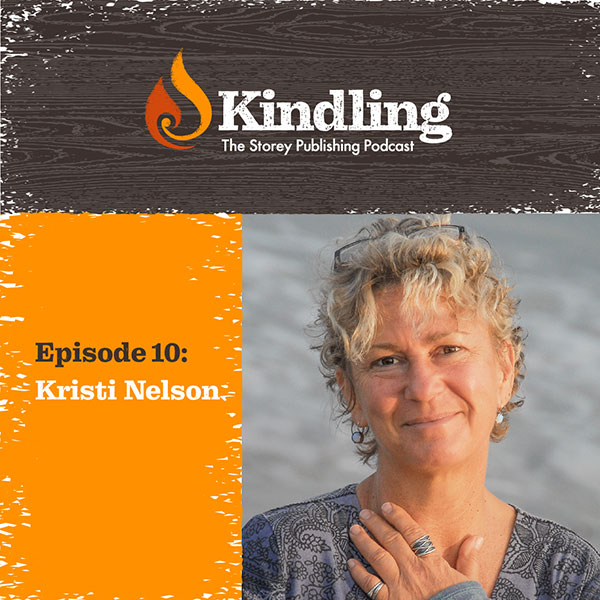
This episode of Kindling: The Storey Publishing Podcast can also be found on podcast platforms including Spotify and iTunes. If you enjoyed this episode, please be sure to leave us a rating and review.
Full Podcast Transcript
Deborah Balmuth:
This is Kindling, the story publishing podcast where we explore the spark that ignites a deep-rooted passion for sustainable living. I’m Deborah Balmuth, Storey’s publisher. From growing organic food and making herbal remedies to fermenting, weaving and raising chickens, the authors we’ll meet will empower you with the skills and savvy they’ve gleaned from years of hands-on experience. In each episode of Kindling, you’ll learn what fuels these authors excitement and what they love most about creating books that share their expertise and enthusiasm with the world.
There was a time when author Kristi Nelson couldn’t write. After experiencing the crippling after effects of cancer treatments, Kristi was left feeling like she didn’t want to miss a moment of her life by sitting and staring at a computer screen. But Kristi also felt in her own words, “Both a soul assignment and a burning mandate from the universe.” So, she committed to passing on a message of gratitude. The result is Kristi’s book, Wake Up Grateful. As she recently shared with Storey’s creative director, Aletha Morrison, after a year of pandemics and political battles, we can all find ways to navigate our feelings of too much.
Kristi Nelson:
This pandemic that we’re currently in, at least the COVID pandemic is bringing us really intimately into encounter with uncertainty. I think that uncertainty is a really challenging place to hang out for a lot of us. And I think there’s a lot that we feel like we’ve got too much of and a lot that we don’t feel like we have enough of in the space of all that uncertainty. And how can we be with that knowing that we never know when the moment is going to change? We never know when things are going to open up. We never know when things are going to get harder. We just have to learn to be with whatever is in the most full-blown and full-hearted way that we can. And in that space, what’s interesting is the intolerable can become much more tolerable.
Now, I only have my cancer journey to reference really, which for me was just weeks and weeks in the hospital tethered to intravenous cords and all those kinds of things. And of course, I felt like, “This is enough. Enough already.” And how do you make the very best of a situation that feels like you’re beleaguered by it? And we’re all invited into that inquiry right now. And I think there’s a lot of rich results that can come by asking that question; how can I be with all of what feels like is more than I can bear and less than I can bear all at once right now? How can I make this the most tolerable space to be? And sometimes it means getting beyond ourselves. There’s also a reflection there for me, which arises, which is thinking about all the people who have it so much worse and recognizing that little acts of kindness and compassion can go a long way, extending ourselves beyond our own immediate discomfort into empathy for the conditions of other people who have it much harder right now.
Alethea Morrison:
I want to hear about, or I know your story, but I want people to hear your story, how you came on this spiritual path, how you came to be an expert on gratitude or gratefulness.
Kristi Nelson:
I probably was always a little bit wired, not much passed me by. I was also deep curious, existential philosophical, teenager, brooding and poetic and all that stuff. And I had a lot of joy for life, I think. I was in awe. I was really lucky to grow up around nature and so, cancer was for me, the big breakthrough experience in terms of orienting me toward what I would say is a more spiritual life, a more grateful life because I could navigate it in the face of what, for me were absolutely unimaginable circumstances.
So previously, if you had told me that I would be in a hospital for 10 weeks, that I would be in incredible pain, I would be undiagnosed. I would be alone in a bed, in this room, in isolation some of the time, attached to all these IV poles, and I couldn’t go anywhere, and it would be the summer, which was my favorite time of the year to be outside, I would have said, “There’s not a chance in hell that I could possibly survive that.” And I did.
So, I think part of it too, is we never know really what we can deal with until we’re up against it. It’s really true. And so, anticipating it, trying to predict it and control it, it’s just useless because you only become who you are in the face of the circumstances as they arise, and then you greet it and then you learn what you’re capable of. I never would have said I would be capable of that, but that amount of isolation for me and uncertainty forged a relationship with myself and with life that I carry with me now. And I think it was based in, wow, I really don’t know how long I’m going to live.
I really have no idea and I really have no idea am I going to get out of here? Am I going to get to see the people I love again, outside? I don’t even know. And so, if this is all there is, how am I going to live into this moment? How am I going to live this fully? And that gave me the opportunity to love the people who took care of me in the hospital to say, “I’m not going to be cut off from my heart.” It was like an act of defiance. Don’t cut me off from my ability to see what is love coming at me to feel it as grace to feel the good fortune in the midst of being in a really hard situation. How was I also fortunate? And I wanted to develop that and it was really cultivating a great flow orientation. I didn’t know it at the time. And that stayed with me.
I see that this way of life has the ability to shift the dial in our world in ways that I think it really needs to shift and that it can be an answer. And again, as you say, not just personally, but also societally and culturally in ways we really need to move out of the drivers that have us destroying the world that we live in, the earth we live on, the people we live among. We’re unconsciously hoarding and we’re driven by scarcity and consumption and these unsustainable ways of being that are not joy producing. And so, helping people step away from that because I think a lot of people really are right now, actually seeing through the curtains that have been put up, seeing through.
It’s like the Wizard of Oz. We can see behind the curtain. We can see that we’ve been sold a bill of goods, a lot of us, a lot of the time about what we should want and what we should aspire to and achieving and moving and driving, driving, striving past this moment towards something else and compromising the quality of life for ourselves and other people in the world that’s so important. So I think a lot of people are really ripe and open right now and it’s just making me very hopeful.
Alethea Morrison:
I’ve recently been introduced to the concept of toxic positivity. That basically means that good vibes are awesome, but a good life, a whole life includes difficult feelings that we shouldn’t have to hide or conquer. What I love about you and your book, Wake Up Grateful is that you make space for grief and joy to co-exist harmoniously. We don’t have to deny or move past pain as we embrace gratitude. Can you explain this paradox?
Kristi Nelson:
I think there is a toxicity for me too, the preoccupation with happiness and with gratitude, as we commonly understand it as being of that whole positive psychology movement, which makes anything that doesn’t feel positive from other people or inside ourselves all of a sudden seems wrong and we make it wrong. Making things wrong right off the bat is going to create so much energy around those things. When we resist things, they are so much more powerful than when we lean into them and embrace them, and make space for them. So even in the midst of your son, for instance, feeling scarcity or disappointment or sadness about things, to try to shift that away is interesting because it doesn’t often work as a deflection.
And sometimes even, when we compare ourselves to other people, it’s actually objectifying, which is a funny thing. It’s like, well, just imagine that you were like the poor people down the street who have so much less than we do. And so, what it does is it objectifies them and it doesn’t assume that they have all their own richness in their life. So, we don’t compare ourselves always to people who have less. I think one of the powerful things is to say, “Imagine the privilege of how much you have and what it would be like not to have what you have that we so take for granted? And imagine how your grandparents would feel when they were growing up to have the gifts and privileges that we have, the freedoms that we have, the access. Imagine even how you might’ve felt 10, 15 years ago when things didn’t exist that currently exist.” And so, it’s not just comparison, it’s enlarging the context
Alethea Morrison:
In your book, you write about holding space for mystery in life and awakening the possibility in uncertainty, which is really interesting because anxiety craves certainty, right? And it’s a radical thought to not want to control things, not being in control being a gift. So how do we surrender that control? How do we trust in life?
Kristi Nelson:
One of the things that I wrote in the book, and as I wrote it, I was really enlightened by it was to imagine if there was no mystery and everything was already all figured out. If we really could have our way, oftentimes we would say, “I want to know absolutely everything that’s going to unfold and have it all be predictable and have it all be certain and figured out and all of that.” And I think what’s fascinating about that is that it leaves no room for potential. It leaves no room for our contribution to possibility arising even or influencing possibility. And so, I think those openings are really critical and those of us who have tried, because I’ve also very much a vigilant person haunted by anxiety often in my life and holding and managing everything so tightly that there’s no space for surprise.
There’s no space for the unexpected to make its way into you. And I do talk about that because I also fell in love with somebody I didn’t expect to fall in love with. And those are the kinds of things that if you don’t leave room for not knowing, you’ll be looking for the thing that you have in your mind as what you’re going for. And you’ll walk right past the things that are really meant to be yours, that can shock you in the most delightful ways, and knowing that we also make room for what’s difficult. Trusting life, that you ask about Alethea too, is to me remembering that we’ve been through difficult times before. Literally all of us. I remember working with this meditation teacher who basically said, “When you love somebody, and I suppose we could even say, when we love ourselves, stop resisting the things that are painful.”
Because pain has been often, when we’ve had to reconcile pain and reckon with pain, if you look back on your life, it’s usually been the time that you’ve grown the most, that you’ve opened the most, that you’ve learned the most. So, when we look back, I look back at some of the things that were most difficult in my life. And when I reflect on those, it’s like, “Oh, I made it through those things.” Yet when I’m in the middle of it, I can’t see making it through. We get blinded. It’s like in those moments, we can’t even imagine there’s a way through. So, in those moments, I think remembering I’ve been anxious before. I’ve learned from my anxiety before. I’ve let go of my anxiety before. I’ve grown from my anxiety before. How can I make space for my anxiety, befriended it? Again, that leaning in rather than resisting. I love asking the question, what does this challenging feeling, circumstance, or whatever, what does it want to teach me?
Alethea Morrison:
So, one of the things I especially like about Wake Up Grateful is that you do talk about individuals helping themselves, but it goes way beyond strategies for self-soothing. It’s not full of platitudes to make us feel more blissed out. It’s a book of activism. So, can you explain how a gratitude practice heals more than our individual selves? How it heals the world?
Kristi Nelson:
I think gratitude is actually very self-soothing. Gratitude is something, it is an attitude, it’s a platitude. It’s a way to feel good. And it’s the most fleeting, conditional, it’s like happiness. It’s highly conditional. It’s usually quite transactional. We’re getting something, so, therefore, we’re feeling better about ourselves in life and then it goes away. It constantly goes away, so it keeps us in this relentless pursuit of more. Our typical relationship to gratitude. I think gratefulness is really from the inside of us and this is really about living gratefully. It’s an orientation to life. It’s about how we can actually orient ourselves, focus ourselves. It’s about the compass we hold inside. It’s about where we return. It’s a touchstone. It’s such a powerful way of being present to life.
And then there’s the practice in the book, which is based on what brother David Steindlrast, who founded the organization, he talks about stop, look, go. That’s how we live gratefully. Is it actually requires stopping, it requires becoming more present, more in-tune with ourselves, getting really here and then looking, which is looking for appreciation, looking for what’s beautiful, looking for what’s amazing, and sometimes we can find that with ease. Sometimes that’s harder to find that. So then you look for opportunity. You look for opportunity to learn something, to see something differently, but perspective is what I believe helps us see opportunity and it helps us appreciate things more.
So, it’s about those, what are those things, that help us have perspective? Then when we’re present and we have perspective, the go, that’s you stop for presence, you look for perspective, go is you actually go towards something that’s possible. You create possibility, you nurture possibility. You do something with the gratitude that you have, because otherwise, it’s stagnant. It’s not life-giving. I think when we feel grateful, it’s a powerful, energetic force that wants to be channeled. And so, when we feel really grateful and I can speak from experience and most people I know who have had these experiences, we feel more generous. We’re more open-hearted, we’re more empathetically connected, honestly.
When we feel grateful for something, we want to do something to protect it, to preserve it, to nurture it, to tend it, no matter what it is. Think about that. It’s like our lives are begging to be engaged with. So, grateful living is an engaged way of going through life. It’s really active. And it’s about saying, “What does this gratefulness, what is this gratefulness of heart,” that’s also another way that I like to say it, “what does this gratefulness of heart asking me to do right now? Where does it want to be channeled?” And so, I believe it’s an energizer. I believe it’s an activator. I believe it makes us more engaged in the world. And I believe it has us doing things to advance what we’re most grateful for.
Alethea Morrison:
We’re living in a deeply polarized culture. I think everyone can agree on that. On a practical level, how do you connect to the humanity of someone who is actively antagonistic to foundational principles you hold dear?
Kristi Nelson:
I think the answer to that question for me comes from the commitment to embodiment that we have in every single moment. What are we going to embody in every moment? And knowing what we stand for, our own principles, being really clear about our own principles and not wavering on those. And I think about non-violence and the civil rights movement as being one of the ultimate stands for something. That no matter what is coming your way, you hold that commitment. And there’s this tremendous amount of love that informs that commitment to non-violence. There’s also a tremendous amount of curiosity and inquiry, I think that a lot of us really … It’s like, I’m curious about how other people hold such divergent principles from me.
How their operating systems are wired so differently than mine and can I follow that curiosity? Can I embody that in some way? Can I take that into a deeper possibility for connection with somebody who’s really different from me or even antagonistic towards me? That there’s some common ground that this idea of shared belonging, right? That we’re all here and you get the choice to embody what you most deeply hold as true. And being able to embody what we stand for in the face of antagonism is one of the most powerful test and most powerful opportunities of our lives. So, the challenge is to take a breath, stop, being thoughtful is the opportunity and then go. Do something.
Deborah Balmuth:
Kristi Nelson is the author of Wake Up Grateful. She spoke with Storey’s creative director, Aletha Morrison. To learn more about Storey publishing’s books and authors, visit storey.com. That’s S-T-O-R-E-Y.com. And if you have questions or comments about what you hear on Kindling, let us know. You can email us at feedback@storey.com. That’s it for this edition of Kindling coming to you from the Berkshire Hills of Western Massachusetts. I’m Storey’s publisher, Deborah Balmuth. Thanks for listening.
KINDLING IS PRODUCED BY SHEIR AND SHIM, LLC.
Learn More
This practical and inspiring program is filled with guiding principles, reflections, exercises, and meditations for making gratitude a daily practice, especially during uncertain and challenging times.
In times of uncertainty and suffering, finding joy and gratefulness in daily life is challenging. Wake Up Grateful provides a practical and inspiring roadmap to making grateful living a daily practice, with guiding principles, reflective questions, affirmations, and exercises. Drawing from her own cancer experience along with her life work with The Network for Grateful Living, Kristi Nelson explores how to develop gratefulness as a way of being. She examines ten core areas where many people need support and guides readers in finding presence and perspective in these aspects of life, opening to greater possibilities, and uncovering the abundance and love that's possible in every moment.Winner: Gold Nautilus Book Award, Personal Growth
